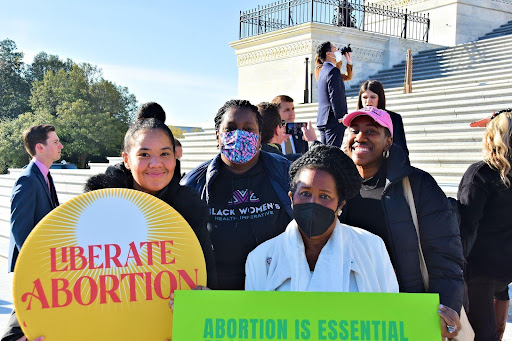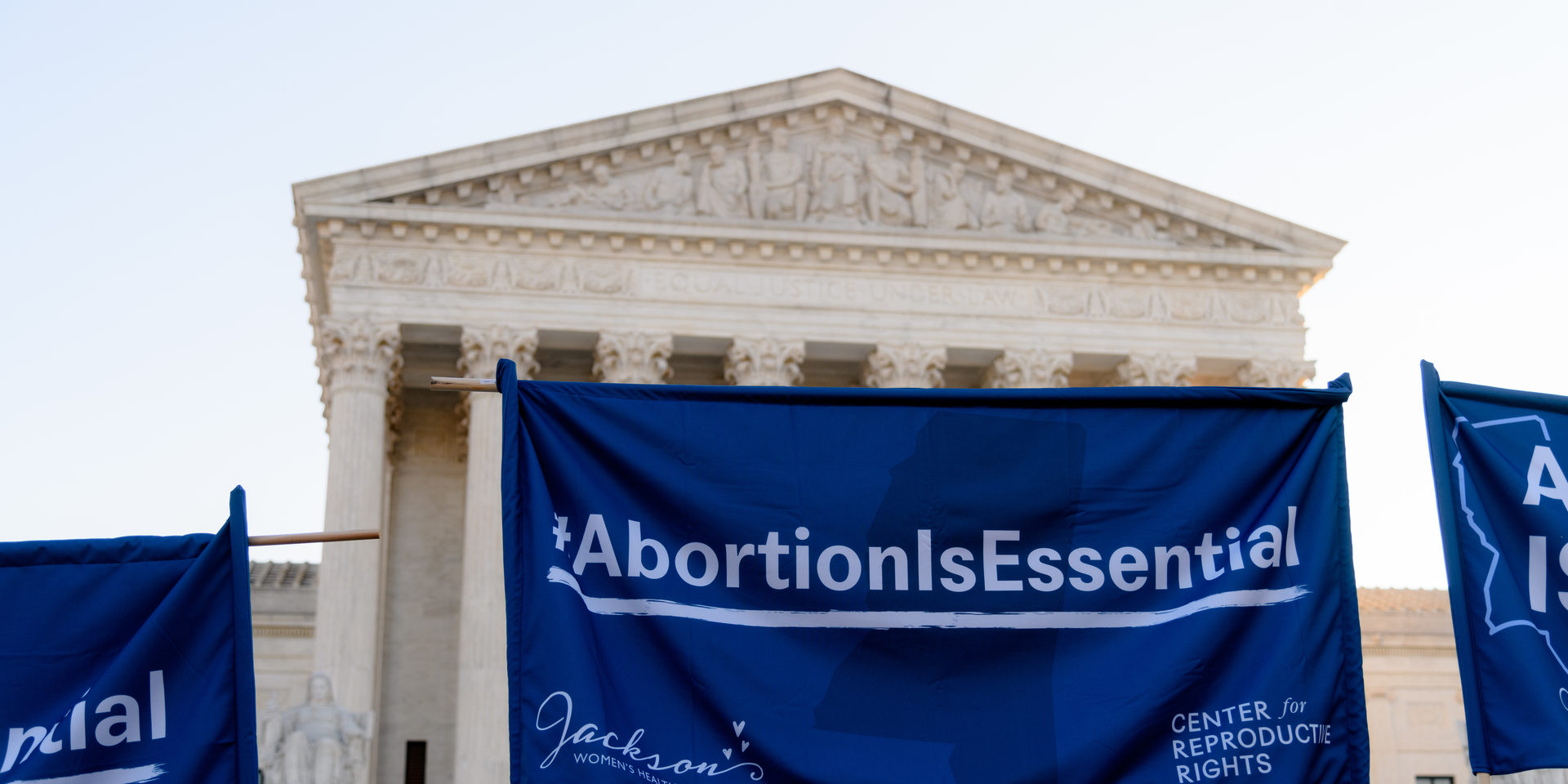 It was oddly warm on that December day as we stood on the steps of the United States Supreme Court. We had no choice but to stay, because the stakes were so high.
It was oddly warm on that December day as we stood on the steps of the United States Supreme Court. We had no choice but to stay, because the stakes were so high.
Arm in arm, huddled close together, women from across the country stood on the steps of the Supreme Court with Speaker of the House Nancy Pelosi, Senator Majority Leader Chuck Schumer, and members of the Liberate Abortion Campaign. They stood among others hoping that the nine justices hearing Dobbs v. Jackson Women’s Health Organization, a Mississippi case that would make most abortions illegal after 15 weeks of pregnancy, would understand that we simply could not go back to a time when we had no choice.
On December 1, the U.S. Supreme Court heard the most serious challenge to abortion in a generation. And disturbingly, by the end of oral arguments, a majority of justices seemed open to considering repealing Roe v. Wade. The justices likely cast votes in their private conference following the hearing, but the decision will likely not come until late June, when major rulings tend to be released.
This case is the most direct and sinister challenge to Roe v. Wade, the 1973 landmark case that established the constitutional right to access abortion.
I stood on those steps with this awful sense of foreboding, knowing that if Roe is overturned, women will certainly suffer, but Black women and women of color stand to lose the most.
As the chief policy officer and counsel for the Black Women’s Health Imperative (BWHI), I know the leading consumer of abortion services is the African American female. According to a 2018 Abortion Surveillance Report issued by the Centers for Disease Control and Prevention, Black women accounted for 33 percent of reported abortions. Black women have the highest abortion ratio in the country, with 335 abortions per 1,000 live births, a rate three times that of white women. [1] Given abortion’s high incidence and racial distribution, the impact of dismantling abortion is most demographically consequential for minority populations, and in particular, Black women.
Our research has shown that women of color are more likely to experience barriers to abortion and other reproductive and maternal health services, including contraception, maternity care, and screenings for reproductive diseases.
Since conservatives have gained a clear majority on the Supreme Court, opponents of abortion have sought to narrow or overturn the legal right to an abortion. In a sign of just how far the court has shifted to the right, the Supreme Court recently refused to overturn a Texas abortion vigilante law with a provision allowing private citizens to sue and receive a bounty from anyone aiding or assisting with abortion services. Even Uber drivers! While the sharply divided justices left in force Texas’s ban on abortions after six weeks of pregnancy, refusing for a second time to block the law, the high court in a subsequent ruling said abortion providers could press forward with claims against some but not all Texas state officials named in that lawsuit.
The recent wave of restrictive abortion laws is disproportionately affecting Black women because women of color are more likely to live in states with the most restrictive abortion laws. Some states, for instance, have imposed waiting periods or mandatory ultrasounds. Some states require that certain abortions be performed in a hospital.
At this critical juncture, maintaining the rights of Black women remains a top priority for BWHI and we will continue to stand at the forefront advocating for reproductive justice and rights for those most impacted by any abortion ban.
We are encouraged by the FDA’s decision to permanently allow abortion pills to be prescribed through telehealth consultations with providers and mailed to patients in states wherever permitted by law. But as someone who often is on Capitol Hill fighting for health equity for Black and diverse populations, I have found the Supreme Court’s recent decisions a breathtaking act of defiance of the rights of Black women seeking access to health care and exercising their reproductive rights.
In this new year, the stakes are highest for Black women due to the growing barriers in access to reproductive health care, the ongoing health disparities due to systemic racism, and the geographical fact that our population lives in states with the strictest abortion laws.
As a policy champion and a Black woman, I stood on those Supreme Court steps because I believe the voices of Black women are needed now more than ever. Even though Supreme Court justices make their decisions privately in conference, let them continue to publicly hear your voice. Let them know that maintaining the constitutional right for all women to decide when to carry a pregnancy to term must remain the law of the land. Let them know that we will stand arm-in-arm against all efforts to create hurdles or dismantle that right like Dobbs v. Jackson Women’s Health Organization. Let them know that we will continue to take a stand against all efforts to whittle away reproductive rights or interfere with a woman’s right to choose.
Go to our site at www.bwhi.org to get more information on how you can join the movement.
Happy Anniversary Roe versus Wade….
Sincerely,
Tammy Boyd, JD, MPH
Chief Policy Officer and Counsel


